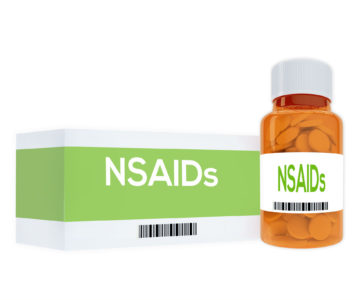 We know that our job as a medical care team doesn’t end once the surgery is over. We want to ensure that you have the best recovery possible, and that begins with a comprehensive pain management plan. It’s not as easy as prescribing a heavy painkiller to numb the pain, because opioids can lead to significant issues, like dependence, addiction and overdose. They certainly have a role in a well-monitored care plan, but when possible, we like to push for non-steroidal anti inflammatory drugs, or NSAIDs.
We know that our job as a medical care team doesn’t end once the surgery is over. We want to ensure that you have the best recovery possible, and that begins with a comprehensive pain management plan. It’s not as easy as prescribing a heavy painkiller to numb the pain, because opioids can lead to significant issues, like dependence, addiction and overdose. They certainly have a role in a well-monitored care plan, but when possible, we like to push for non-steroidal anti inflammatory drugs, or NSAIDs.
A recent study decided to take a look at weather NSAIDs inhibited bone healing rates following a foot or ankle surgery, because if they prevent addiction but compromise the integrity of the surgical fix, it’s not an ideal solution. For the study, researchers tracked the healing rates of more than 230 patients who underwent foot or ankle surgery. One group was given a few different NSAIDs to manage their pain, while another group received hydrocodone-acetaminophen to help with their pain. All patients had their bone union tracked following the operation, and researchers examined healing rates at a 12-week post-op appointment.
After viewing the data, researchers discovered that NSAIDs did not negatively impact bone healing rates compared to the opioid group. In other words, over-the-counter pain relievers did not make bone healing less likely.
Managing Pain Post-Op
We try to use NSAIDs to help our patients manage pain because they can prevent opioid dependence and provide similar healing rates. The study backs up our care plan, as there has been no scientific link between NSAIDs and bone healing issues after an operation. Essentially, the study is saying that when pain can be managed with NSAIDs, that should be the preferred route.
It’s nice to see the care plans we use at our clinic be affirmed with clinical research. Again, we want to provide each patient with the best care possible, and that means finding the best possible pain management plan for each individual. Opioids may be part of the solution, but the sooner we can get you on an NSAID plan while still maintaining adequate pain control, we’re going to do it, because it doesn’t affect healing rates and it can prevent addiction and dependence.
A final key component of our post-op care plan is communication. Patient education of the risks, benefits and drawbacks of post-op pain medications is very important, and we always stress that the line of communication between patient and provider should remain open. If you have any questions or concerns, please don’t be afraid to ask, because we are more than happy to make adjustments that are right for your situation.